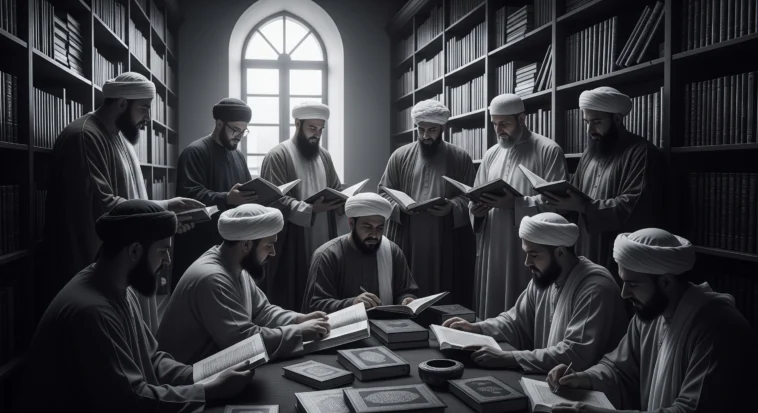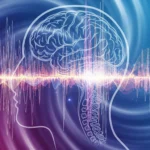
You know what’s wild? We almost lost all the genius of ancient Greece—Aristotle, Plato, Euclid, gone.
After Rome fell, Europe was kinda stuck in the mud.
But meanwhile, in the Islamic world, scholars in places like Baghdad were basically on an epic book hunt.
They grabbed those Greek texts, translated them into Arabic, argued over them, and even improved on the ideas.
They weren’t just protecting knowledge—they were remixing it.
And later, they handed that wisdom back to Europe, which helped spark the Renaissance.
Honestly, without them, modern science and philosophy might not even exist.
They literally kept reason alive.
The Crisis of Knowledge in Medieval Europe
Alright, picture this: Europe’s brain just got unplugged.
When Rome collapsed, people basically forgot how to read Greek.
And that was a massive deal, because all the “cheat codes” for understanding the universe—written by legends like Aristotle and Galen—were in Greek.
It’s like having the only copy of the ultimate game guide, but it’s in Japanese, and oh yeah, your console’s busted too.
That’s where Europe was.
Sure, some monks tried to save the day by copying stuff into Latin, but it turned into a giant game of telephone—bits got lost, twisted, or just plain wrong.
And since they were mostly focused on religious texts, the science manuals were left to gather dust.
Europe was this close to pressing delete on a thousand years of human genius.
The Rise of the Translation Movement
So, just as Europe’s lights were dimming, this brand-new powerhouse rose in the East: the Islamic Empire.
And get this—their capital, Baghdad, turned into the ultimate hotspot for genius.
Think of it as the Silicon Valley of the ancient world, but instead of apps and gadgets, it was all about mind-blowing ideas.
The new rulers, the Abbasids, were straight-up obsessed with knowledge.
One Caliph, al-Mansur, basically said, “Go find me every brilliant book on Earth and bring it here!”
Didn’t matter if it was Greek philosophy, Persian science, or Indian math—he wanted it all. And he had the money and power to make it happen.
But this wasn’t some boring “stack the books in a library” deal.
Nope—this was like a government-backed super-project to collect, translate, and level-up the world’s best ideas.
They weren’t just saving knowledge—they were upgrading it. They were about to hit turbo mode on human progress.
The House of Wisdom: Center of Intellectual Excellence
Imagine the most epic library you can dream up—now crank it up by a thousand.
That was the House of Wisdom in Baghdad.
And forget the idea of a dusty, quiet library.
This place was alive—like a buzzing brain filled with sparks of genius.
Scholars from everywhere—Christians, Muslims, Jews—were all under one roof, trading ideas like currency.
They didn’t just copy Aristotle and say, “Cool, thanks.” Nope.
They tore into his work, argued about it in the hallways, and threw in their own twists: “Nice one, Aristotle, but what if we looked at it this way?”
They even had an entire translation squad, basically the ancient version of a think tank.
It was the ultimate collab.
Picture your group chat—but instead of memes, they’re unlocking the secrets of light, math, and the planets.
They knew they weren’t just studying—they were rewriting the playbook of human knowledge.
Honestly, that place was electric.
Key Figures in the Preservation Movement
Al-Kindi: The Father of Arab Philosophy
Alright, first up—meet al-Kindi.
Think of him as the hype man who brought Greek philosophy into the Arab world’s spotlight.
But here’s the thing: he didn’t just translate Aristotle and call it a day.
Nah, al-Kindi was like that person in the comments section who always has a hot take.
He’d be like, “Okay, Aristotle, solid point—but have you thought about it from this angle?”
He mixed Greek logic with fresh ideas, basically kickstarting a whole new way of thinking.
Total trendsetter.
Ibn Rushd (Averroes): The Great Commentator
Fast forward a few centuries, and we get Ibn Rushd—aka Averroes if you’re in Europe.
This dude was OBSESSED with Aristotle. Like, next-level fan status.
He wrote commentaries so sharp and so clear that when European scholars finally got hold of them, it was like someone flipped on the lights in a dark room.
Students at the University of Paris were basically saying, “Wait—who IS this Ibn Rushd guy, and why is he blowing my mind?”
Imagine that—a Muslim scholar in Spain ending up as Europe’s unofficial philosophy professor. These guys? Absolute OG influencers of knowledge.
The Scope of Preservation: Beyond Philosophy
Here’s the cool part—it wasn’t just about philosophy.
The preservation project in the Islamic world was like grabbing the whole library of human genius.
We’re talking math, medicine, astronomy, biology—you name it.
If the Greeks wrote it, these scholars were translating it, debating it, and pushing it further.
Picture this: Euclid’s geometry? Saved.
Ptolemy’s star maps? Saved.
Galen and Hippocrates’ medical notes? Also saved.
But here’s the twist—Islamic scholars didn’t just copy-paste the material.
They actually went, “Hmm, that’s good… but we can improve this.”
They corrected mistakes, added commentary, and sometimes leapt ahead of the Greeks entirely.
So when future generations cracked open these works, they weren’t just reading dusty translations—they were getting a supercharged version of ancient science.
Thanks to that, the knowledge pipeline stayed alive and ready for the Renaissance to light it up again.
The Linguistic Achievement
Okay, so here’s the wild part—Arabic back then was already an awesome, poetic language.
Perfect for epic stories, songs, and love poems.
But it didn’t exactly have the vocab for “geometry,” “physics,” or “logic.”
That’s like trying to describe a quantum computer using only Shakespeare quotes—beautiful, but totally useless for science.
So what did these scholars do? They straight-up invented the words.
They built a brand-new scientific vocabulary from scratch to handle all these Greek ideas.
And they nailed it. Within a couple of generations, if you spoke Arabic in 10th-century Baghdad, you basically had VIP access to the world’s knowledge.
You could stroll into a bookstore and grab Aristotle off the shelf the way you’d grab the latest bestseller.
Arabic became the language of science and philosophy—the English of the medieval world.
If you wanted to play in the big leagues of knowledge, you had to know it.
They didn’t just preserve wisdom—they built the world’s first intellectual internet, out of words.
Enhancement and Innovation
Here’s the best part—they weren’t just copying these books word for word.
Nope, they were upgrading them, like gamers modding a classic game to make it way cooler.
Think about it: the Greek texts were like an old-school game full of bugs.
Instead of just playing it broken, these scholars patched the glitches, wrote walkthroughs for the hardest parts, and then dropped whole new expansion packs with their own discoveries.
So when Europe finally got these works back centuries later, they weren’t getting the dusty, outdated version.
They were getting the ultimate special edition—with bonus content, upgrades, and all the DLC included.
Islamic scholars weren’t just librarians—they were editors, critics, and creators, making Aristotle and his crew even sharper than before.
They didn’t just preserve knowledge; they powered it up to the next level.
The Path Back to Europe
For centuries, this mountain of knowledge was chilling in libraries across Muslim-ruled Spain and Sicily—just sitting there, waiting.
Then, slowly, European scholars started stumbling onto it. Sometimes it was through the Crusades, other times when Christian kingdoms took back Spanish cities.
Picture a monk wandering into a dusty library, cracking open a book in Arabic, and going, “Wait… what IS this?!”
And boom—it hits them. These weren’t just random books.
They were the lost secrets of the ancients—but better, because Islamic scholars had upgraded them.
So Europe started translating them again, this time from Arabic into Latin.
That’s when the fuse was lit. Suddenly Aristotle—with killer commentary from people like Ibn Rushd—was showing up in Paris and Oxford.
Students’ minds were exploding. Professors were like, “Where has this been all our lives?!” And just like that, Europe’s Renaissance took off.
All that art, science, and innovation? It only happened because the torch of knowledge was carried through the Islamic world and finally passed back.
Europe didn’t just wake up—it woke up holding a supercharged library.
Correcting Historical Misconceptions
Alright, let’s set the record straight—Islamic scholars weren’t just “librarians” dusting off Greek books. Way off.
Think of it like finding your grandpa’s old guitar.
You don’t just hang it up—you tune it, add new strings, play his riffs, then start writing your own songs.
That’s exactly what they did with Aristotle and crew.
They didn’t just preserve knowledge—they remixed it, upgraded it, and made it stronger.
It wasn’t babysitting old ideas—it was a full-on intellectual glow-up.
The Broader Impact on Human Knowledge
Those Islamic scholars weren’t just saving books on stars and medicine—they were asking huge questions: “What’s real? How do we know what’s true?” They kept that fire burning.
And here’s the kicker: the Scientific Revolution, Newton’s “giants,” the Enlightenment’s “question everything” vibe—it all traces back to them.
Every time we talk about logic, evidence, or how the universe works, we’re speaking the language they kept alive and leveled up.
This isn’t a footnote—it’s the backbone of how we learned to think.
Conclusion
The work Islamic scholars did to save and upgrade Greek knowledge is one of the greatest intellectual wins in history.
By translating, preserving, and improving those ideas, they built a bridge from the ancient world straight to us.
And here’s the lesson: knowledge doesn’t “belong” to one culture—it’s a shared human treasure.
Back then, Muslims, Christians, and Jews worked side by side chasing truth. That teamwork is why we still have Aristotle, Euclid, and Hippocrates today.



